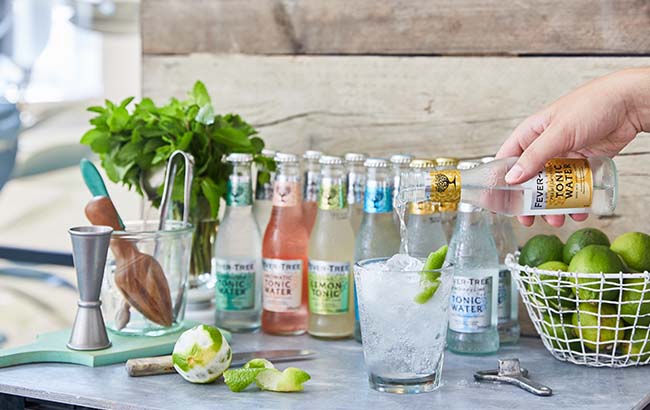Fever-Tree: US tariffs present no headwinds
By Nicola CarruthersMixer producer Fever-Tree expects the impact of US tariffs to be mitigated over time by local production and its Molson Coors partnership.

In a trading update published ahead of its annual general meeting today (5 June), London-headquartered Fever-Tree reported on its progress in key markets.
The company said it had continued to deliver strong momentum in the US, performing ahead of the competition (according to Nielsen year-to-date data to 17 May 2025).
In January 2025, Fever-Tree agreed to sell an 8.5% stake to brewing giant Molson Coors for £71m (US$88.4m) to “take the brand to the next level” in the US.
The group said the transition of Fever-Tree’s distribution to Molson Coors’ network is underway and proceeding as expected.
Fever-Tree expressed its confidence that the brand would “benefit from Molson Coors’ scale, including its deep customer relationships, merchandising capabilities, and extensive supply chain network in the coming years”.
US tariff update and new CEO
Regarding the 10% tariff on UK imports to the US, Fever-Tree noted this would be shared equally between the two companies, which are working together to mitigate the short-term impact.
It highlighted that the tariffs “do not present a structural headwind for the business as, over time, they will be materially mitigated by a combination of on-shored US production and the profit guarantee mechanism”.
Furthermore, the group announced that Charles Gibb would be stepping down as CEO for its US business.
US chief commercial officer Judd Hausner, who has worked for Fever-Tree since the establishment of its US arm in 2018, will succeed him.
Hausner previously worked across the US beer network and is said to bring the ‘ideal blend of experience’ to manage the Molson Coors partnership.
The US, which overtook the UK as Fever-Tree’s biggest market in 2023, reported revenue growth of 9% to £128m (US$165m) last year. Total Fever-Tree sales rose by 3% last year, led by the US, while demand for tonic in the UK declined.
Beyond the US, Fever-Tree noted that its brand strength and diversified portfolio have helped it retain its number-one position in both the UK on- and off-trade, citing data from IRI (52 weeks to 20 April) and CGA (moving annual total to 22 March).
In Europe, Fever-Tree reported ‘good momentum’ across several markets, including the Netherlands and France. However, its performance in Germany was ‘muted’.
The company also began local production in Australia.
‘Sufficient’ investment funds
The group stated it would comfortably meet low-single-digit revenue growth for its 2025 full year.
The company’s share buyback scheme of £71m, which began in February 2025, was extended to £29m (US$39.3m) a month later (subject to shareholder approval).
Since the end of May, Fever-Tree has repaid approximately £42.5m (US$57.6m) to shareholders, with the aim of returning the rest over the course of the year.
The firm also claimed to ‘retain sufficient cash for investment opportunities, primarily in operational expenditure, including increased marketing spend in growth regions’.
The group is keeping an eye out for any M&A opportunities to help it deliver on its strategy.
Related news
US boosts Fever-Tree sales in 2025 as UK wanes
